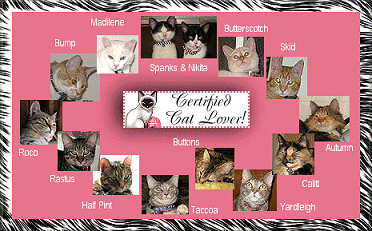Ok, Vallis is a barker. When we first got him he would bark right at you for you to pet him, but we have been ignoring him and it has stopped for the most part because it doesn't get him any attention.
How do we get him to stop barking at everything outside and inside when he hears a noise?? Eric works from home 3 days a week doing tech support (he takes calls) so he can't have a lot of background noise and we don't want to have to crate Vallis while he works. I have thought about squirting him lightly with water, but I don't want to have to do that until I hear other suggestions first. Is there better way to get him to stop barking every time he hears something (more pleasant for him anyway)? Thanks!






 Reply With Quote
Reply With Quote
 Boy howdy if we can get some good advise on this one Hey count me in...
Boy howdy if we can get some good advise on this one Hey count me in...
 ) We've been through school, videos, books, etc...
) We've been through school, videos, books, etc... 


 It will take a while until he/she learns what he/she should or shouldn't bark at, but at least it is a good start. Good Luck, I think Corgis are natural vocalists, too.
It will take a while until he/she learns what he/she should or shouldn't bark at, but at least it is a good start. Good Luck, I think Corgis are natural vocalists, too. 

Bookmarks